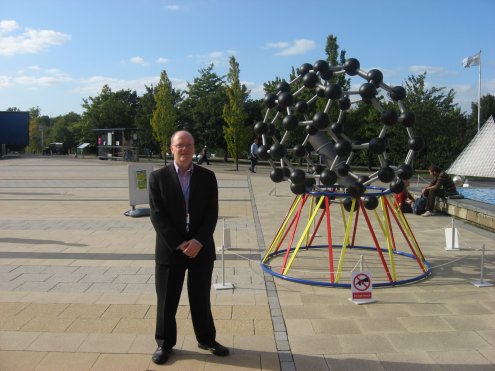
Alex Murphy
By James Dacey
“We could start detecting dark matter within the next few months,” said Alex Murphy, as he delivered the Lord Kelvin Award lecture today at the British Science Festival in Guildford.
Murphy is the head of the University of Edinburgh contribution to the ZEPLIN III dark matter project, which is due to get underway this November.
Hidden underground in a salt mine on the north east coast of England, the ZEPLIN project is searching for signals of the elusive dark matter that could account for 23 % of the total energy density in the Universe.
ZEPLIN itself is a scintillation detector comprising eight litres of liquid Xenon. The researchers are looking for weakly interacting massive particles, or “WIMPS”, which – according to Murphy – is the most likely dark matter particle.
The reason the Edinburgh physicist is so confident that his collaboration will start churning out meaningful results is because ZEPLIN III has just undergone several important upgrades.
The key to confirming the WIMP signal is to rule out all other potential sources of background noise – one of which is sources of radiation from the detector itself. ZEPLIN gets around this problem with a unique “two phase” system that would detect WIMPs in both liquid and gas states.
“We focussed on getting everything clean and pure and maximizing the clarity of signal,” said Murphy.
To avoid bringing human influence into the experiment, ZEPLIN III will run for a year initially before the first results are analyzed.
“There’s nothing else in the country at the moment in terms of physics results that is more exciting and timely than the Zeplin collaboration,” he said, when I caught up with Murphy after his lecture.
ZEPLIN III is a collaboration between the University of Edinburgh, Imperial College, Rutherford lab and European collaborators.



